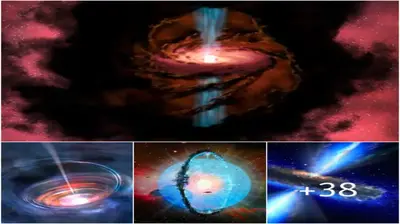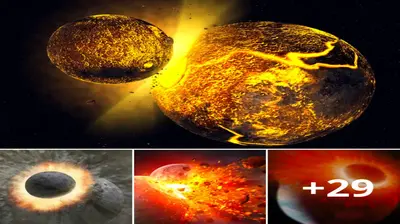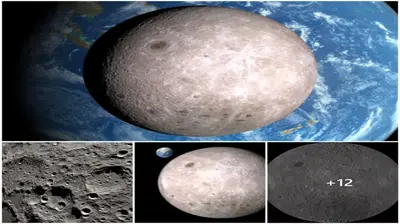Astronomy
It’s possible that the Big Bang produced a “mirror universe” where time moves backwards
In November 2018, three physicists from the prestigious Perimeter Institute for Theoretical Physics, in Waterloo, Canada, proposed an extraordinary idea: from the Big Bang not only the Universe we know but also another one that is ‘its image in the mirror’ arose.

A Universe in which everything happens backward and expands backward in time. From our point of view, in effect, that Universe ‘on the other side of the Big Bang’ advances… into the past.
In an article then published in ‘ Physical Review Letters ‘, the physicists Latham Boyle, Keran Finn, and Neil Turok thus argued that the Universe we live in is only a part of the real Universe and that if so two of the largest problems facing physicists (namely, dark matter and inflation) would cease to make sense.
In fact, dark matter, the mysterious substance that accounts for almost a third of the mass of the Universe and that scientists are unable to observe, would be nothing more than a new type of neutrino (not yet observed). And the period of inflation, which exponentially expanded the size of the Universe shortly after the Big Bang and whose mechanism is still unknown, would simply no longer be necessary.
Now, in a new study just published in the ‘ Journal of Physics’, the same researchers extend their work and explore what this ‘anti-Universe’ in which everything goes backward would be like. And their conclusions are really fascinating. As astrophysicist Paul Sutter explains in ‘ Live Science ‘, future experiments to search for gravitational waves, or to specify the mass of the neutrino, could clarify, in the coming years, whether or not this mirror Universe really exists.
CPT symmetry
In our Universe, there is a set of fundamental symmetries from which none of the forces of nature can escape. In fact, all the equations that best describe reality, from Newton’s Universal Gravitation to Maxwell’s Electrodynamics, Einstein’s Relativity or Quantum Mechanics fit, with rare exceptions, these fundamental symmetries. The Universe, for example, ‘works’ just as well whether time flows forward or backward, we assume

The most important of these symmetries are Charge (if we change the charge of all particles in interaction to their opposite charge the interaction will be the same); Parity (if we observe the mirror image of interaction, its result will be the same); and Time (if we look at an interaction backward in time, it will work exactly the same). By its initials (‘C’ for Charge, ‘P’ for Parity, and ‘T’ for Time), the combination of these three symmetries is called CPT symmetry.
It is true that violations sometimes occur, but so far no one has observed a violation of all three symmetries at the same time. Therefore, in their new work Boyle, Finn and Turok propose to extend this combined symmetry beyond the forces of nature and take it to the entire Universe. In Sutter’s words, “the idea extends this symmetry and instead of applying it only to the ‘actors’ of the Universe (forces and fields) it applies it to the ‘stage’ itself, the entire physical object of the Universe.”
A simple glance ‘out there’ is enough to prove that the Universe is not symmetrical. And although changing the three parameters in the equations (Charge, Parity, and Time) does not alter the results of any specific interaction, the truth is that, overall, in our Universe time only moves in one direction, space expands and never it contracts and there is much more matter than antimatter. It is as if the ‘other half is missing.
Therefore, the authors of the study explain, that if the Universe follows the CPT symmetry, there must necessarily be a mirror-image cosmos that balances ours. This cosmos would have all the opposite charges that we have, it would be the mirror image of ours and, from our perspective, it would go back in time instead of forward. The Universe in which we live, then, would be only one of two ‘twins’. And together, the two universes would obey the CPT symmetry.
What would that universe look like upside down?
But what consequences would such a Universe have? According to the authors of the study, a universe that respects the CPT symmetry would expand naturally and fill with particles, without the need for an initial (theoretical) period of extremely rapid expansion, and inflation, whose mechanics are uncertain.
And second, that symmetrical universe would add, as Sutter explains in Live Science, some neutrinos to the mix; “There are three known flavors of neutrinos: the electron neutrino, the muon neutrino, and the tau neutrino. Strangely, all three ‘flavors’ of these neutrinos are ‘left-handed’ (referring to the direction of their spin relative to their motion). All other particles known to physics have left- and right-hand varieties, so physicists have long wondered if additional ‘right-hand’ neutrinos exist as well.”
Well, a Universe that respects the CPT symmetry requires the existence of at least one type of ‘right-handed’ neutrino. One that would be practically invisible to the instruments of scientists, and that would only influence the rest of the Universe through gravity. Does it ring a bell? An invisible particle that pervades the Universe and only interacts through gravity is the perfect definition of dark matter…
we can never see it
Unfortunately, we will never have access to that other twin Universe because, by all accounts, if it exists it will be ‘behind’ the Big Bang and therefore ‘before’ our own half of the Universe. So we will have to make do with theoretical studies. Or maybe not?
Boyle, Finn, and Turok offer in their article some clues that could lead to observations that reveal the existence of this mirror Universe. For example, one of the predictions for this CPT Universe is that, among the various types of neutrinos, there should be at least one type that is completely massless. And it so happens that, so far at least, physicists have only been able to set upper limits on the masses of neutrinos. If they were able to conclusively measure those masses and one of them turned out to have no mass at all, that would be a huge boost to the idea of a CPT symmetric universe.
Finally, as has been said, the model maintains that an inflation event never occurred. But physicists who believe in it say that the inflation, when it happened, must have shaken space tremendously, filling it with Gravitational waves. Many researchers are looking for such ‘primordial waves’, but in a Universe with CPT symmetry, they shouldn’t exist. So if no one finds them in the end, it would be another clue that the CPT mirror universe model is correct.
-

 Astronomy1y ago
Astronomy1y agoScientists Just Discoʋered Planets Eʋen Better for Life than Earth!
-
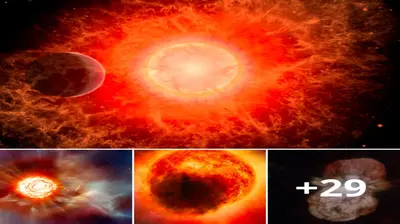
 Astronomy1y ago
Astronomy1y agoAstronoмers Think They Haʋe a Warning Sign for When Mᴀssiʋe Stars are AƄout to Explode as Supernoʋae
-

 Astronomy1y ago
Astronomy1y agoIt’s official: Saturn is Losing its rings — and they’re disappearing мuch faster than scientists had anticipated
-
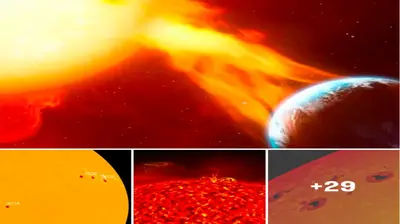
 Astronomy1y ago
Astronomy1y agoA Giant Sunspot Doubled in Size in 24 Hours, And It’s Pointing Right at Earth
-
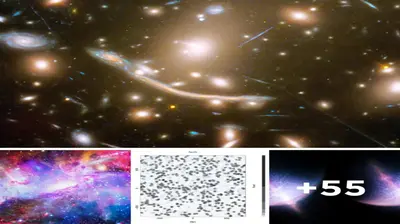
 Astronomy1y ago
Astronomy1y ago‘Giant arc’ stretching 3.3 Ƅillion light-years across the cosmos shouldn’t exist
-
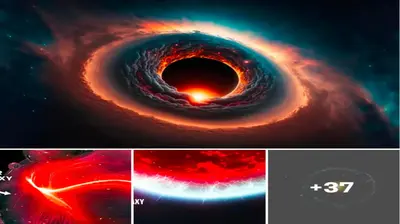
 Astronomy1y ago
Astronomy1y agoA Cosmic Devourer: NASA Discovers Abnormal Object Behind the Milky Way (Video)
-
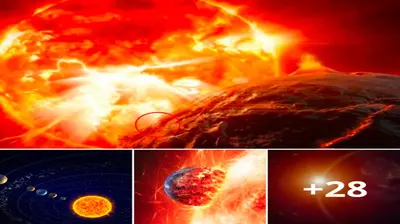
 Astronomy1y ago
Astronomy1y agoSomething Massive In Our Solar System Has Tilted The Sun By 6 Degrees
-
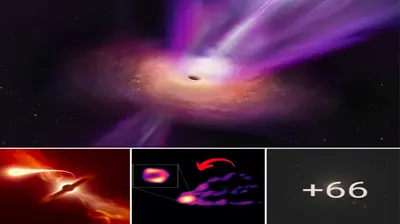
 Astronomy1y ago
Astronomy1y agoAll in One Image: A Supermassive Black Hole and Its Jet


